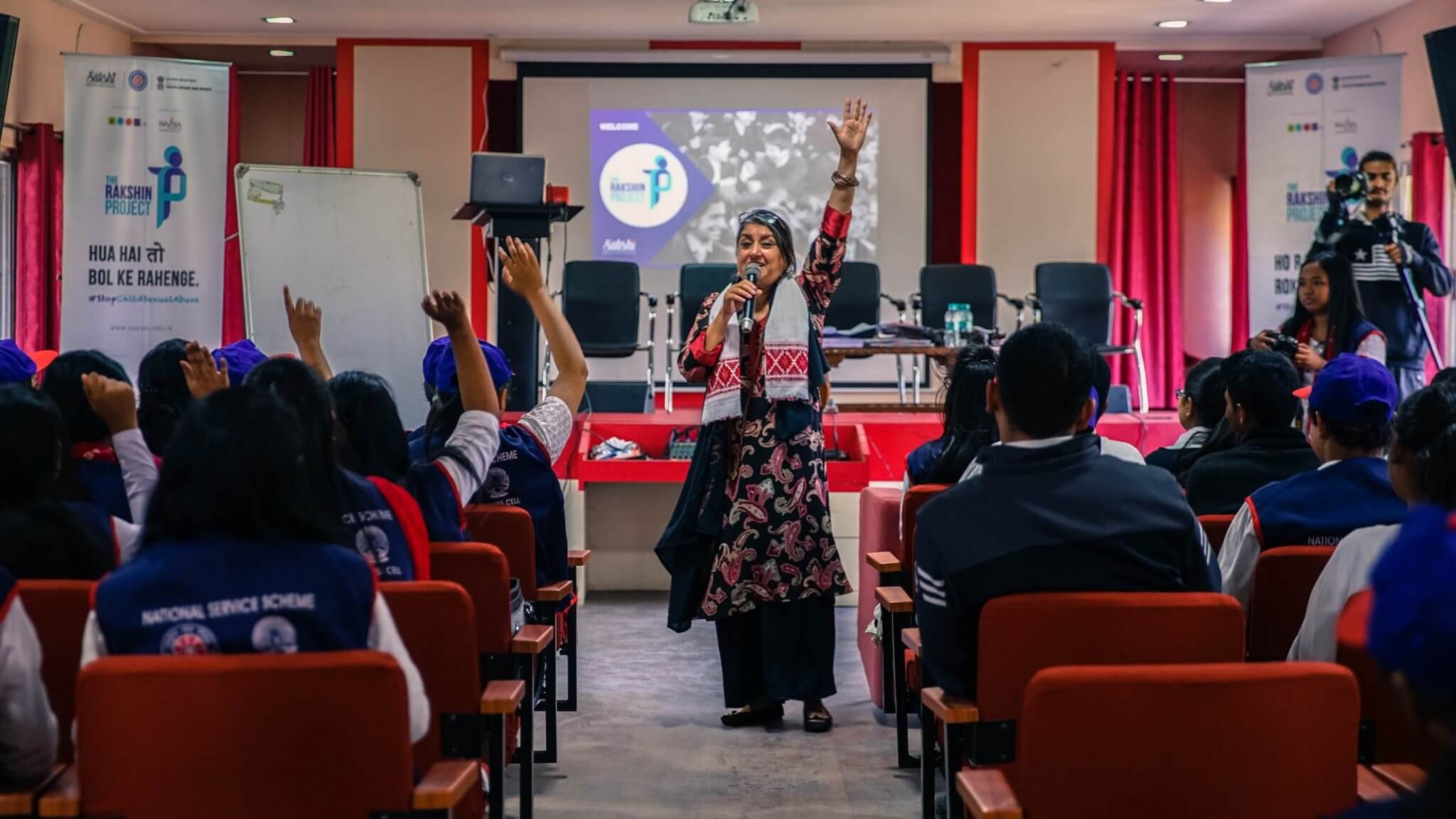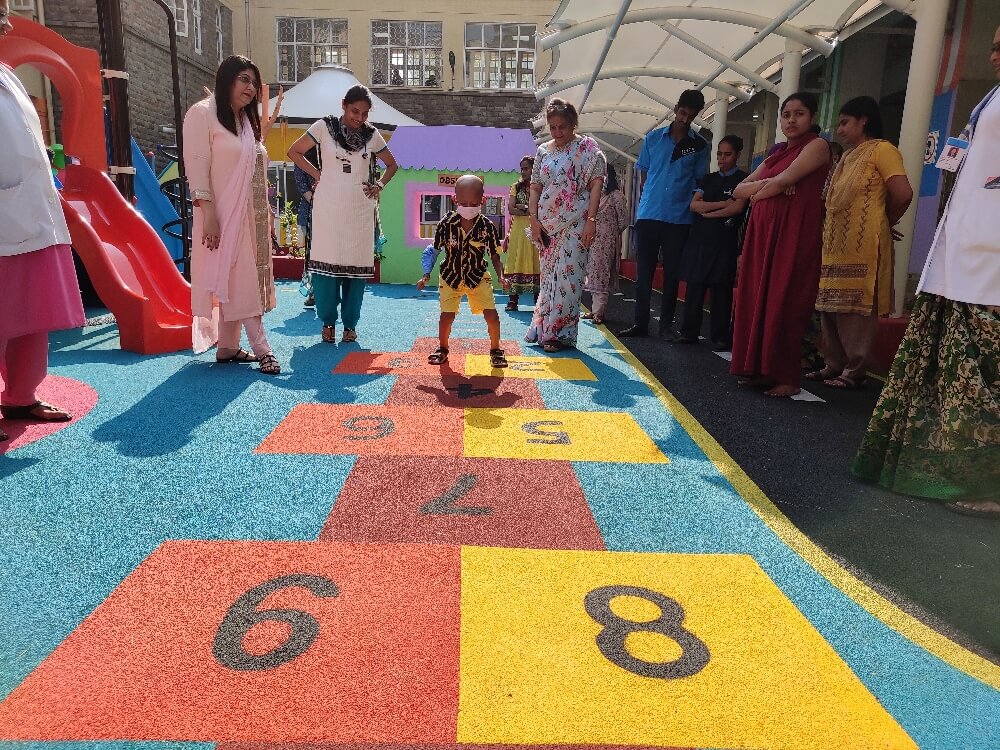
As a step towards a solution to #StopChildSexualAbuse, the Directorate of NSS, Ministry of Youth Affairs & Sports has directed Sakshi (Regd. NGO 1992), to launch The Rakshin Project which will aim at delivering 3 Hour pro-bono workshops to NSS Units in 40,000 Colleges and Universities across India thereby equipping 40 Lakh Youth to be Rakshins (Preventers of Child Sexual Abuse).
Sakshi (Regd. NGO 1992) is a capacity building organisation and is the pioneer in working against Sexual Harassment and Child Sexual Abuse in India. At a time when we did not have laws, Sakshi worked to create these laws. After having filed two critical PILs ‘Vishaka Vs. State of Rajasthan’ and ‘Sakshi Vs. Union of India’ and becoming the force behind The Vishaka Guidelines 1997 which led to the formation of POSH (2013), the 172nd Law Reform that informed the Sexual Assault Bill (2010) and POCSO (2012), Sakshi realised that although these laws now existed, there still remained a gap in interpretation by the judiciary. From 1997 to 2007 Sakshi ran ‘The Asia Pacific Advisory Forum on Gender Equality’ to educate the judiciary of 5 Nations in the region – India, Sri Lanka, Nepal, Bangladesh and Pakistan. This program was declared the Best Practice Program by UN Women and over the years has become a credible model for international courts.
With the laws made, the interpretation of the laws set into place, what remained was for this knowledge to percolate to citizens and become a part of everyday life. To this effect, The Rakshin Project, a 3 Hour workshop is now officially included in the 120 Hour National Service Scheme Curriculum to not only educate the students on the POCSO 2012 (Amended 2019) law and their constitutional Right to Equality but to also provide survivors with a 360º resolution mechanism with access to Creative Expression, Counselling, Legal Aid and Sustained Engagement.
Spread over a period of 10 years, with a direct impact on 4 million and indirect impact on 12 million youth, The Rakshin Project promises a social tipping point for an entire generation desperately in need of a sustainable solution for sexual assault and gender violence.
A testimonial from a 19-Year old participant from a very conservative geography said “It’s for the first time I have realised that my own sense of shame and discomfort about using language around anything sexual is violating the constitutional right to equality for myself and another. Because I am ashamed and uncomfortable to call out the prohibited sexual behaviour, I let it continue for myself and my sister.”
The module and program of The Rakshin Project has been designed by renowned writer, theatre director and social engineer, Smita Bharti along with Supreme Court lawyer and founder of Sakshi, Naina Kapur, who was also the lead instructing counsel on the Vishaka Guidelines 1997.
Smita Bharti, the Executive Director of Sakshi, goes on to say, “I could have picked sexual harassment, sexual assault or marital rape to work on, but I chose Child Sexual Abuse because that’s where it starts. These traumatic violations are repressed and supressed leading to mental health issues as adults that none of us want to take responsibility for. And so, The Rakshin Project, equipping a generation of young adults with information, know-how and language to speak up and prevent Child Sexual Abuse and if they have experienced it themselves, accept, acknowledge and move towards healing and resolution.”
The program model also includes a Fellowship that has been crafted by Sanjiv Sharma, one of the pioneering producers of Reality TV in India and co-founder of production giant, Optimystix who says, “I’ve spent years understanding Content, Communication and Technology. I’ve used this powerful tool for brands or just pure audience engagement. I feel blessed to be able to funnel all this experience and learning for The Rakshin Project and participate in creating a generation of Rakshins (Preventers).” Also on the think tank of the project is former COO of advertising giant GroupM, Sridhar Ramasubramanian.
Combining the social and legal with mainstream entertainment tools, the unique programme will use the deployment of the experiential pedagogy using films, role plays, songs, games, sharing and debriefs to ensure that the information penetrates the tertiary layer of information gathering, sediments as fact-based knowledge, and is processed through an emotional interface to supersede conventional wisdom, thus impacting deep seated and embedded attitudes around child sexual abuse.
";

